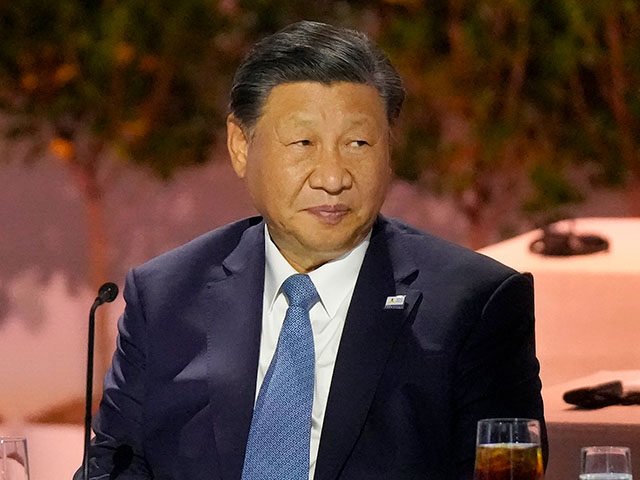China’s manufacturing activity slowed again in November, casting a pall over what the state-run Global Times awkwardly dubbed “Xiconomics,” the economic agenda of dictator Xi Jinping.
The Global Times was all smiles as it reverently reported on Xi’s “exciting” inspection tour of Shanghai, praising the maximum leader for his focus on “high-quality financial development, scientific and technological (sci-tech) innovation, and improvement of people’s livelihood.”
“The inspection trip offered yet another strong signal of the country’s top economic development priorities and profound encouragement to businesses and workers in the main economic hub and across the country, at a critical juncture when the country pursues high-quality development and Chinese modernization amid major shifts in the international geo-economic landscape,” the Global Times gushed.
“The General Secretary’s trip to Shanghai shows that the top leadership of the central government pays great attention to financial and sci-tech development. Shanghai is relatively advanced in these aspects and is also in a critical period of development,” said Shanghai University of Finance and Economics professor Xi Junyuang, striving diligently to make that “sci-tech” coinage happen.
After heaping paragraphs of praise on Xi for his alleged commitment to “improving people’s livelihood,” the only example the Global Times could think of was Xi inspecting a “government-subsidized rental housing community.”
The Global Times grudgingly admitted that state-subsidized apartments have become a high priority as the Chinese real estate market collapses. Buyers have grown understandably nervous about losing deposits and making rent payments on homes that are never actually built because the builders encounter cash-flow problems. State-subsidized housing at least carries the implicit promise that the government will ensure construction is completed.
“Xiconomics” took another hit on Thursday as November’s numbers came in, showing factory activity down for the second straight month, while non-manufacturing activity hit a new low for the year. As CNBC reported:
The official manufacturing purchasing managers’ index unexpectedly fell slightly to 49.4 in November from 49.5 in October, according to data from the National Bureau of Statistics released Thursday. This was slightly worse than the median forecast for 49.7 in a Reuters poll. China’s official manufacturing PMI also came in below forecast last month.
The official non-manufacturing managers’ index slipped to 50.2 in November from 50.6 in October, according to the same NBS release. This was the weakest reading since December 2022.
… “Survey results show that more than 60% of manufacturing companies reported insufficient market demand. Insufficient market demand is still the primary difficulty affecting the current recovery and development of the manufacturing industry,” Zhao Qinghe, a senior statistician at the Service Industry Survey Center of the National Bureau of Statistics, said in a separate statement.
CNBC noted some positive indicators as well, such as improving business confidence and renewed energy in the construction sector, although most other industries related to real estate were still contracting.
The Global Times on Thursday dismissed the poor manufacturing report as the predictable result of a “traditionally lackluster season.”
As with CNBC’s analysis, the Global Times said market demand was weak, but hopefully predicted the manufacturing sector would improve as “stimulus measures” gradually take effect.
“China’s central bank and other government agencies on Monday announced a package of 25 points to step up financial support for the private sector, including efforts to diversify financing channels for private businesses,” the Global Times reported.

COMMENTS
Please let us know if you're having issues with commenting.